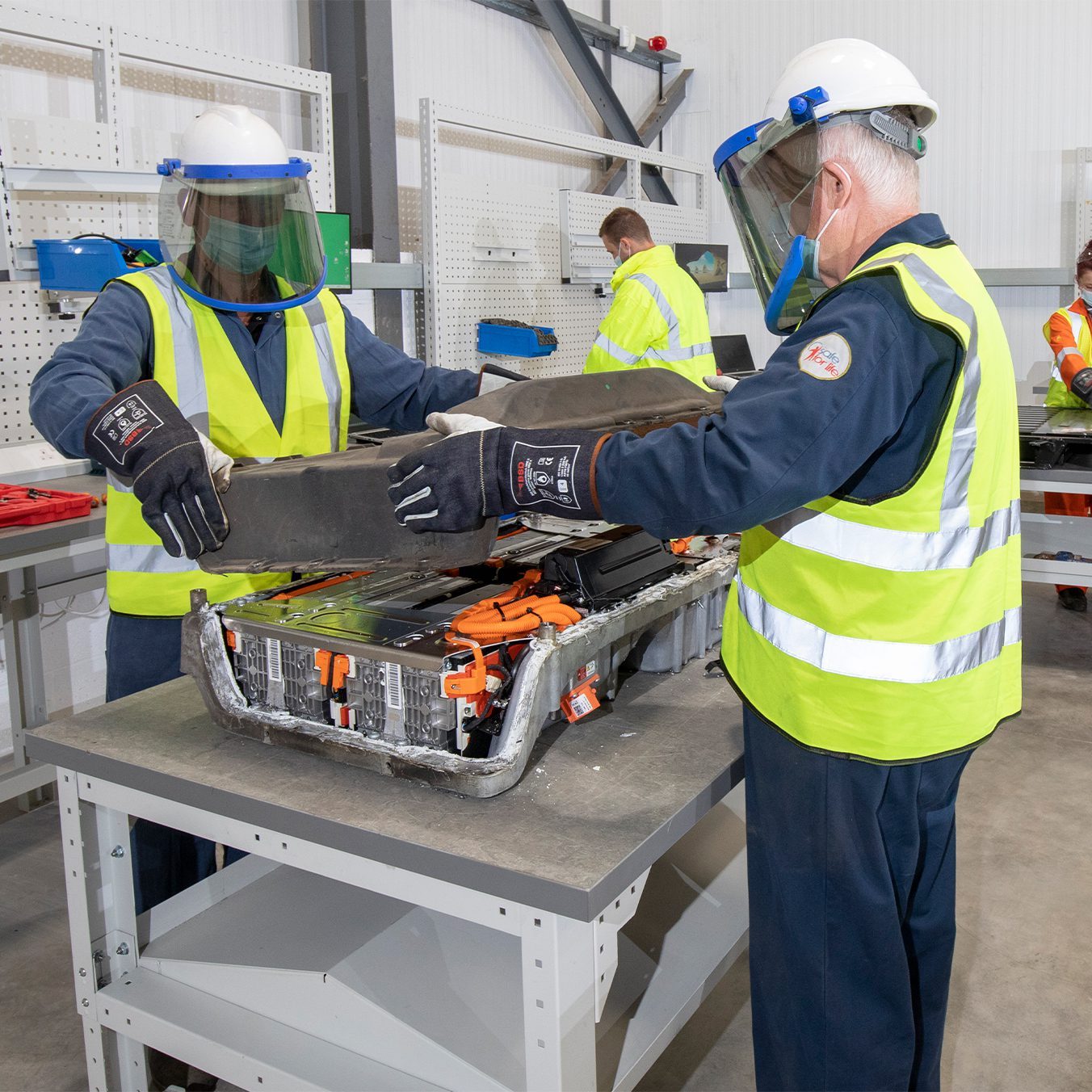
The U.S. is about to get a new recycling plant for lithium-ion batteries. The Casa Grande, Arizona, facility is projected to turn out 10,000 tons of recycled materials annually, with plans to expand as demand increases.
Building domestic recycling capacity is a huge step in the right direction for the U.S. battery sector, as converting to renewable grids and electric vehicles (EVs) will hinge on the industry’s ability to recycle lithium-ion batteries efficiently.
Scaling up renewable energy in the Southwest
The Arizona plant, which is battery recycler Ecobat’s first in North America, is expected to be operational in the third quarter of this year.
It's the latest sign that the Grand Canyon State is emerging as a leader in renewable energy. Together with Nevada and the Navajo Nation, the state is trying to secure federal funds to build a clean hydrogen hub that could go online as early as 2024. Arizona is also home to the Solar Zone at the University of Arizona’s Tech Park, a leading site for research and development that also powers the campus and local grid.
"With the addition of yet another global battery innovator, Arizona has become a central hub of energy storage and recycling technologies," Sandra Watson, president and CEO of the Arizona Commerce Authority, said in a statement. "With this state-of-the-art facility, Ecobat Casa Grande will enhance Arizona's sustainability footprint while expanding our battery industry and creating skilled jobs."

The downside of scaling up
Of course, more renewable energy and more EVs also mean more batteries. And more batteries mean an increase in the mining of new materials and a whole lot more waste to dispose of — much of it toxic to the environment and human health. As it stands now, the conversion to our carbon-free future threatens to saddle us with another deadly environmental crisis.
Lithium extraction in the Andean region of South America in particular has caused “significant environmental and social impacts, especially due to water pollution and depletion,” according to Friends of the Earth. “In addition, toxic chemicals are needed to process lithium. The release of such chemicals through leaching, spills or air emissions can harm communities, ecosystems and food production. Moreover, lithium extraction inevitably harms the soil and also causes air contamination.”
Likewise, the city of Labota in Indonesia acts as a grim warning for a future dependent on batteries and the continuous mineral extraction required to make new ones. Wired’s Peter Yeung reported how the once quaint fishing village has been turned into a sprawling industrial complex dedicated to feeding the EV industry’s surging appetite for nickel. Even worse, the lack of oversight and labor protections at the site means workers are dying.
Yeung quoted Pius Ginting, who co-authored a report on the EV sector's impact in Indonesia for the Rosa Luxemburg Foundation. “Labor exploitation, economic injustices, and environmental degradation are undermining the socio-ecological transformation promised by electric vehicles,” Ginting said. “The public needs to know the reality of what’s happening.”
Reduce, reuse, recycle
At present, only about 5 percent of lithium-ion batteries are recycled. Recycling lithium-ion batteries as they reach the end of their lifecycles will be imperative to stave off further environmental damage. The Ecobat expansion in Arizona represents a positive turn toward a more environmentally-responsible conversion to renewable energy. After all, what good is keeping carbon out of the atmosphere if our land and water are toxic instead?
But recycling alone isn't enough. We must reduce our consumption as well. One way to do that is by investing in mass public transportation, which is much more effective than the “EV for everyone” model that will inevitably cause massive environmental destruction.
Images courtesy of Ecobat

Riya Anne Polcastro is an author, photographer and adventurer based out of Baja California Sur, México. She enjoys writing just about anything, from gritty fiction to business and environmental issues. She is especially interested in how sustainability can be harnessed to encourage economic and environmental equity between the Global South and North. One day she hopes to travel the world with nothing but a backpack and her trusty laptop.














